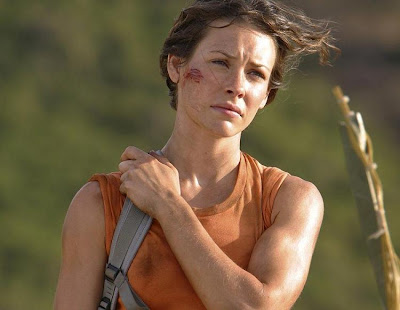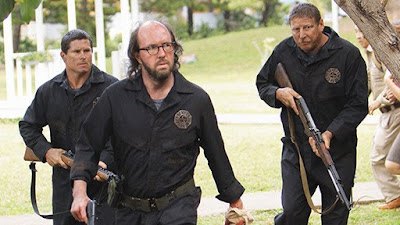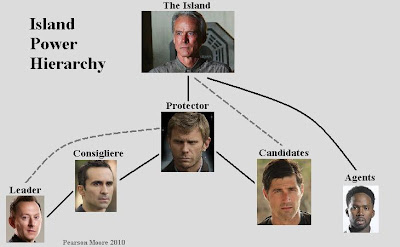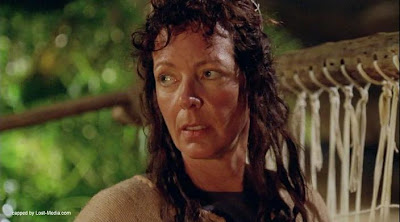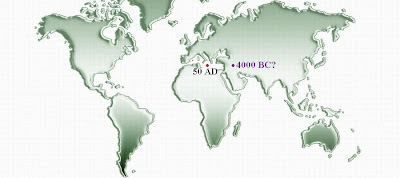
"Let's elope."
"No. I'll get your father's blessing."
Sun all but rolled her eyes at Jin's quaint ideas. She must have wondered if he had spent his life in the nineteenth century. He would never obtain the great Woo-Jung Paik's permission. "You don't know my father." He didn't pause even for an instant. "I know me," he said, and gave her a beautiful white orchid, symbol of purity and eternity.
She was overwhelmed the day he brought the ring. "I have his blessing." But what she took for traditional charm turned into matrimonial slavery. "Clean the house. Wash yourself. Button your dress!" Mr. Nineteenth Century was not charming anymore. He was an overbearing, domineering chauvinist. She did what any modern woman would do: She plotted an escape, seduced a lover, learned English. Jin would never find her in America.
The day came at the Sydney airport. While he looked forward, she backed away. But then he did something not in her plans. He peered back at her with enchanting eyes, a beautiful white orchid in his hand. She cried, because she knew. She knew Jin.
In an epic tale replete with romance, theirs was the greatest love story of them all, but more than that: The story of Sun and Jin was the central lesson of LOST. We must come to know Jin and Sun, for it is through their story that we understand the Heart of the Island.
Reconciliation, Redemption, Rewatch

This was to have been an essay about Jin-Soo Kwon alone. His story was distinct from Sun's, and they were separated for nearly two full seasons. More important to an essayist, their redemptive paths were different, virtually demanding separate essays. But then I rewatched House of the Rising Sun (1.06), and everything changed. By the end I was shedding tears over a story that meant so much more after the final submarine scenes of Season Six, but I also realised Jin's story did not stand alone. Writing about Jin without Sun would be as pointless as attempting a portrait of John Locke containing no reference to the Island, or a blizzard with no mention of snow. They are distinct persons, but theirs is a single epic, breathtaking story.
I have argued in previous essays that LOST is not about free will or destiny, but rather it centres on personal identity. LOST required much of its main characters. They had to overcome personal histories and limitations, redeem themselves in thought and deed, in most cases they had to reconcile with someone, usually a father--and all of this in some way had to serve the interests of the Island. These objectives were achieved out of individual volition, and they represented the will of the Island (and thus they were destiny), but they were most of all the necessary steps toward realisation and assertion of identity.
Portraits of Jin and Sun could probably be relayed in separate essays, but this would not reflect well the intent of their character arcs and the much larger story, of which their sub-plot is a major strand. In fact, if we do not understand Sun-Hwa Paik and Jin-Soo Kwon, we don't understand the sideways world, and we don't understand LOST. Their story is the very thesis of LOST, relayed in the most compelling of human terms.
Juxtaposition

A poor fisherman from a small village. A millionaire industrialist from the largest city in the country. One would show kindness to a complete stranger, the other would kill his best friend to get ahead. They shared a common language, but the similarities ended there. They lived short kilometres away from each other, but they were so far apart culturally, in their priorities, in what they believed and stood for, they might as well have been from different planets. When Mr. Kwon dies no one will notice. When Mr. Paik dies the country will mourn. But the mourners would do well to forget Mr. Paik and lament instead the passing of a truly great man who taught tradition, confidence, and respect.
Mr. Kwon has one of the shortest entries at Lostpedia. He appeared in only two of the 121 episodes. We have been given only a single name: Mr. Kwon. What you are reading in these lines may constitute the longest continuous discussion of this man anywhere in the world. We can say only that we know practically nothing about him.
If we say this, though, we are wrong. We know much about Mr. Kwon. In fact, we know more about him than any of the other minor characters, and most of the supporting characters. Every time Jin did a good deed, we saw Mr. Kwon. Every time Jin used reason and good judgment and appealed to human dignity, we saw Mr. Kwon. Every time Jin respected his wife rather than claiming ownership over her, we saw Mr. Kwon.
Without a wife, without help mate of any kind, Mr. Kwon raised his son to honour and respect tradition, to cultivate a love of life and people, to fearlessly confront even the most difficult situation. Mr. Kwon was homemaker, janitor, housekeeper, school teacher, and money earner. He was anything and everything Jin needed.
Above all else, Mr. Kwon was arguably the best father depicted in the six years of LOST. Jin-Soo Kwon has one of the longest entries at Lostpedia. I do not overstate at all when I tell you Jin's impressive résumé should be understood as a much abbreviated statement of his father's long list of accomplishments, most of which were never recorded on paper. You see, Mr. Kwon's accomplishments were all recorded in the good character of his adopted son.
We also know Mr. Paik. Cut from the same cloth as Charles Widmore, Martin Keamy, and Stuart Radzinsky, he was not all bad. In fact, he respected everyone--as long as a bribed official did exactly as Paik wished and did nothing to upset any of his plans, he wouldn't cut off his hands, or have one of his thugs beat his wife until her jaw cracked and she vomited, or shoot the family dog in front of the children. Al Capone is credited with the adage, "You can get much farther with a kind word and a gun than you can with a kind word alone." To this Mr. Paik would add, "And brass knuckles will get you even farther."
Progeny Recapitulates Phylogeny

As she grew into adulthood, Sun came to be more and more like her mother and distanced herself from her authoritarian father. Then a man steeped in Korean tradition came into her life. A quiet, gentle, caring man. Jin was the very opposite of Paik Woo-Jung, the perfect man to give her a new life free from her father.
When Jin went to work for Mr. Paik, he destroyed Sun's dream of a happy future. Nothing good could come of this, she was sure. Probably even she never would have imagined that every characteristic she despised in her father would be magnified ten-fold in Jin. Sun was living a nightmare: her husband was becoming her father.
Jin had no history with Mr. Paik. He didn't enjoy being used as a thug and hitman, but there was a price to be paid for sleeping in Sun's bed, and her father enforced the highest possible toll.
SUN: [Subtitle: We can start a new life. We'll go away...]
JIN: [Subtitle: A new life? If we run away, your father would...]
SUN: [Subtitle: He won't know where we are. And you won't have to do this anymore -- you won't have to...]
JIN: [Banging the table] [Subtitle: I do this for you, Sun! I do this because your father expects it. I do this because that's what it takes to be married to you.]
When his marriage was on the line, Jin learned quickly. He learned how to perform tasks he never would have chosen to do. He had to be good at what he did, because Paik Woo-Jung would demand nothing less than perfection.
Perhaps there are in this world criminals who lie, cheat, steal, and beat their enemies into a pulp but are otherwise exemplary members of society. Is Tony Soprano all that different from corporate wheelers and dealers who, if it were legal to do so, would bribe, steal, and murder? Doesn't Tony Soprano care for his family as much as those cut-throat corporate executives do?
The noble criminal, Tony Soprano. It's an interesting myth, but I see no connection to reality. Human beings just don't align their thoughts in one way during the business day and then arrange an entirely new set of priorities on the way home. A fundamental lifestyle option has repercussions through all facets of life. Jin began to exhibit every behaviour Sun hated because permeation of vile thought and action into every relationship was inevitable, and a much more realistic depiction of a man in his situation than anything written for the six years of The Sopranos. We are what we eat.
Jin consumed massive quantities of arrogance, absolute patriarchal control, and violent speech and action. He delivered all of these to the men Mr. Paik sought to discipline--and he delivered them to his wife, too.
The Bridges of Gyeonggi-do Province

Everything in Sun's demeanor and words brought absolute clarity to her feelings about her father. She wanted nothing to do with the man. She conveyed this fact repeatedly to Jin. Was he not listening? Did he not understand the most obvious and essential part of who Sun was? She was not a person to be held as chattel, not a woman to be treated as child, object, or beast of the field. She was her own person, equal in stature with Jin, equal to anyone in this world.
Jin did not act in any way to accommodate Sun's needs. He did not understand. He did not listen. He did not hear. Didn't he know the gifts were unnecessary? When he brought her an expensive purebred puppy, her response was, "Remember when all you had to give me was a flower?" The white orchid would have been enough. She could have sacrificed everything, lived in abject poverty, if only he gave her his heart. Everything else was unnecessary, superfluous, harmful to their marriage.
She had already endured a lifetime of her father's unbending will and the suffocating atmosphere of his toxic presence. Now she knew with certainty what her father is. She saw the truth of him in the blood on Jin's hands, in the gun he strapped to his side. Jin became her father, and worse. Everything she ever tried to escape now lived in her house, slept in her bed, ruled her, directed her, owned her.
She had to escape. Leaving Seoul would not suffice. Her father could track her anywhere in the country. But speaking only Korean, she was trapped in the Republic of Korea and its barely one hundred thousand square kilometres. She began studying English with a passion. Finding time was not difficult. Jin was away most of the day, enforcing her father's self-serving and evil will. She spent those long hours every day memorising words and meanings and pronunciations, absorbing rules of grammar, syntax, and intonation.
Her teacher was adorable. Jae was quiet, kind, gentle, sure of himself but not arrogant or proud. He was skilled and gentle in bed. His fluency in English was her ticket out of Korea; his generous heart was the guarantee of her freedom.
Did she wish her plan to fail? She could have been more discreet, but she almost flaunted her affair, meeting at her place or his, not even bothering to disguise herself or take circuitous routes to the sites of their trysts. She knew her father and his thugs watched her; he had been doing so all her life.
She should not have been surprised, then, when Paik Woo-Jung showed up at the door, catching them in flagrante delicto. She must have known the inevitable outcome, too. In those darkest days of her life, she must have reflected on the possibility--the likelihood--that Jae Lee would have lived if not for her own unyielding selfishness, her lack of concern for Jae's safety.
Jin arrived early one evening, for once not absorbed in his terrible duties. He must have felt her depression. "I have to deliver a gift for your father," he said, looking at her with compassionate eyes. He produced two Oceanic tickets. "Come with me."
The plan was so simple it could not possibly fail. She would lose Jin in the Sydney airport, stay a few days, and leave for the United States under an assumed name. She would finally be free of her father's tyranny.
They were in the Oceanic check-in line. Jin was absorbed, as usual, and Sun took slow steps, backing away from him. It was then that it happened. Her looked at her with those eyes again. No one had ever looked at her in that way--not since their courtship. Not since the day she knew in her heart that he loved her and only her. There he stood, looking back at her, loving her, raising a white orchid to his nose.
A Good World

Days before the flight, Jin was distraught. Paik was forcing him to commit increasingly violent acts. Sun was depressed and wouldn't tell Jin anything. He turned to the one person he trusted.
FATHER: Jin!
JIN: Father. Please forgive me. I was -- ashamed of you.
FATHER: [giving him a hug]
[Shot of them with a trap, working on the boat.]
FATHER: What is she like?
JIN: Beautiful. Intelligent. Hardheaded. We don't talk anymore.
FATHER: Why not?
JIN: Because I can't tell her -- about her father. In a good world -- she would hate him, not me.
FATHER: It is a good world.
JIN: You don't know what I've done.
FATHER: You are my son. It does not matter what you've done.
JIN: I wish I could start over.
FATHER: Why can't you?
JIN: I have responsibilities.
FATHER: More important than your wife?
JIN: Her father wants me to deliver watches to his associates in Sydney and Los Angeles.
FATHER: Then let that be the last thing you do for him -- then walk away. Don't come back. Go to America. Save your marriage.
Mr. Kwon understood perfectly the truth that had escaped Jin. Nothing was more important than his marriage to the "beautiful, intelligent" woman who would give up anything for him. Jin had been too long under Paik's dirty and bloody thumb. Sun and Jin belonged to each other, not to Paik Woo-Jung. In a conversation lasting not even five minutes, Mr. Kwon cleared away years of rotting filth from Jin's mind.
"It is a good world." Everything Jin ever wanted was in the marriage he already had.
He knew what the white flower meant to Sun. It was the revelation of everything in his heart. "Go to America. Save your marriage." And there they were, in the check-in line at Oceanic Airlines, minutes away from a trip to Los Angeles and new freedom in the United States. When Jin drew the flower from his bag, brought it to his nose, and peered back at his lovely wife, she knew--he could feel it. Nothing would ever keep them apart.
Betrayal

Jin became the most physically abused survivor in Season One. He attacked Michael over Paik's watch and ended up in handcuffs, sweating and burning in the hot sun. When Walter burned the raft, Jin tried to put out the fire to save it. Later, seeing the burn marks on Jin's hands, Michael was sure he'd found the arsonist. If the man would beat him senseless over a watch, would he stop short of burning Michael's raft? Michael slugged him. And again. He pummeled Jin until his face was bloody.
Unable to take anymore, Sun shouted in English, "Stop it! Leave him alone!"
No one was more shocked than Jin.
How had she learned English? Thirty-two days on the Island could not possibly have been long enough to become fluent in such a difficult language. She had been leading another life, not for weeks, but for years. Who was this woman he had been sleeping with?
Perhaps the world was still good, even if Sun was rotten. Jin went into the jungle and came back with a long bamboo pole on his shoulder and approached Michael. When Michael looked at Jin, a puzzled expression on his face, Jin said one word, in English: "Boat."
Redemption

Jin spent the next two months helping everyone. He helped Michael rebuild the raft, cutting construction time in half. Weeks later, he volunteered his sailing skills, piloting the Elizabeth to the other side of the Island to rescue Jack, Kate, Sawyer, and Hurley. After their rescue, when Hurley and Sawyer got into a fight, Jin broke them up. When Jack revealed the Others' plot to invade their camp and take the women, Jin was first to volunteer to stay behind and kill the invaders.
Over a period of two months Jin accomplished more good, helped more people, and felt better about himself than he had since he left the Southern village of Namhae for the big city in the north. He was a different man than he had been in Seoul. He was kind-hearted, as he had been in his youth. But now he brought wisdom and courage and balanced consideration to everything he did.
He and Sun began sleeping together again, and their happiness was evident to everyone. Hurley knew what was going on, and gave Jin a big "thumbs up" sign when he rose from their tent in the morning. Jin could only smile.
This was not the man Sun had married years before. He was more considerate, compassionate, and caring than he had ever been. He did not scold or reproach, even when she chose to wear a bikini. During the day, while he was away helping others, Sun thought of their nights together, full of more passion, romance, and happiness than they had ever known.
Pregnancy should have been their greatest joy, but Juliet knew it was a sentence of death. When Sun told Jin they would stay on the Island with Locke rather than leave with Jack, Jin confirmed her choice. "Wherever Sun go, I go." But Juliet knew Sun had only days to live if she made such a choice; she would die in the second trimester. Juliet decided to violate doctor-patient confidentiality. It was the only way to save Sun's life.
JULIET: Jin. Your wife had an affair.
[Sun turns around]
JIN: What?
JULIET: Sun was with another man. She thought the baby was his.
[Sun slaps Juliet, and turns to Jin. Jin, looking angry, turns and heads back to the beach.]
Jin knew Juliet's declaration contained an importance much greater than yet another revelation of Sun's secret life back in Korea. Something more was at play here. He needed to talk with someone. But his father was thousands of kilometres north. The best Jin could do was to occupy himself with the skill his father taught him.

BERNARD: You realize we're the only two married guys on the island?
....
JIN: Married.
BERNARD: ... It's not easy, is it? Oh, I mean, it's--it's wonderful, but... Rose ... has cancer. She's sick. Dying... She says she's better now. She says it's this place ... the island. But when the camp split up, I was sure that she'd want to go with Locke. Why would she want to leave the island, and risk getting sick again?
JIN: Then why do you stay with Jack?
BERNARD: Because it was the right thing to do. Locke ... he's a murderer. See, it's all about karma, Jin. Do you know karma?
[Jin nods]
BERNARD: You make bad choices, bad things happen to you. But you make good choices...
Bernard's life was all about Rose. She was making a decision to leave the Island, even though it meant her death. Bernard's words could only make Jin think of Sun, that her decision to stay would mean his wife's death. It was a thought unsettling in his mind. "Karma," Bernard had said. "Make good choices."
He had made all the bad choices in Korea. "You make bad choices, bad things happen to you." Jin and Bernard fished for many hours. Jin, silent, sat next to Bernard and thought about his marriage, about Sun, about her life, about her coming death.
Reconciliation

As the sun set, Jin approached their tent carrying grilled fish on a plate. Sun was inside. What followed was the most important scene of Season Four.
JIN: I made ... dinner.
SUN: I thought you had left me. Will you let me try to explain?
JIN: It won't matter.
SUN: Just listen, maybe--
JIN: I know why you did it. I know the man... I used to be. Before this island, I withheld my affections... And I know... that whatever you did... you did to that man. His actions caused this. So I forgive you.
[Sun smiles in tears, they embrace]
Three Years and Lifetimes Apart
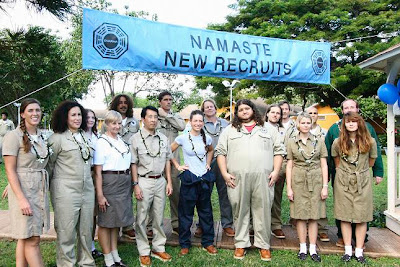
Jin fulfilled his promise to get Sun off the Island, but keeping the promise meant paying a steep price. Sun thought Jin was dead. When the Island's representative, Christian, showed her the "New Recruits" photograph from 1977, he told her Jin was there with them. "I'm sorry, but you have a bit of a journey ahead of you." Jin might as well have been dead. Thirty years in the past, the Purge would take him long before Sun could figure out a way to reach him.
Sun did everything in her power to get back to Jin. She took on Charles Widmore without fear. She stared down her own father and took his company away from him. She talked with Richard Alpert, and even swallowed her distaste and talked with Benjamin Linus.
Nothing could stand in her way. But when the thing claiming to be Locke offered to bring her to Jin, she knew not to trust him. It was as if she had heard Bernard's words to Jin. "Karma. You make bad choices, bad things happen to you." Even though she sought Jin above anything else in life, she somehow knew to run away from the Man in Black. She made the right choice. Short hours later, and three years after they last held each other, they were united again. "I won't leave you. I will never leave you again... I love you, Sun."
Purity

Marriage is just about the greatest state two people can share, but it is the most difficult job in the entire world. All of us wish for marriage to work when we enter into it, but half the time--in some places more than half the time--it fails. Jin and Sun had more than their fair share of marital issues, and they brought on many of these problems themselves, by falling into easy temptations. But somehow they rose above all of these most difficult challenges, achieving something that many of us would sacrifice much to emulate. Jin and Sun gave their lives to achieve it.
In their death, I think, is a strong statement about the power of love. Many question or even condemn Jin for his decision to stay with his wife to the end. But I think he had his priorities straight. He became a courageous example to all fathers.
Fatherhood, as with any responsibility of significance, is in its essence a commitment requiring action. Jin's relationship with Ji Yeon was made possible because of the strength of his relationship with Sun. By acting to honour his commitment to marriage and his wife, he was honouring and supporting Ji Yeon. This was nothing the girl would understand in her childhood. But as she grew older, for the rest of her life, she would know with greater certainty than most of us that her life came about because two people loved each other more than life itself. Ji Yeon's significance goes beyond even her own life, because the essence of her, what she truly is, is based in a love that is more powerful and truer than life. Perhaps she will not recognise that or understand the implications of it until well into adulthood. But as some point she will know. Jin had his priorities straight. In the decision to never again leave Sun, he became the greatest father any girl could ever have.
When we find each other, we are no longer lost. When we commit to something greater than ourselves, give everything we have, we discover that which never dies. The sideways world was LOST's statement of the reality we should be seeking here and now, before we take our final breath in this world. Sun and Jin were the perfect couple and the perfect parents because they considered nothing in this world more precious than their marriage. In their sacrifice, they became the most complete example of the perfect human relationship, and the purest example of the lesson LOST sought to teach.
Eternity

Hurley jogged off the jungle path and onto the sandy beach, heading directly for Ben. He stopped a metre from his second in command, taking rapid breaths.
"Did Rose give you the--"
Ben patted the wooden box tucked under his arm. "It's right here, Hugo."
"It's the right one?" Hurley frowned. "It's gotta be the right one, it's just--"
"It's the right one, Hugo," Ben said, an edge to his voice. "I checked just to be sure."
"Okay, dude. Cool."
Ben pointed to the outrigger canoe at the shore. A single figure in yellow rain coat sat unmoving in the middle of the boat. "Just like last year," Ben said.
"Yeah," Hurley said, frowning, but now with a slight smile. "Don't know why it's gotta be a raincoat, it's--"
"It's tradition. Nothing wrong with tradition, Hugo."
"No, I guess not." Hurley took a big breath and exhaled. He scanned the sky for a few moments and then set his eyes on the canoe. "Okay, let's do this."
Hurley and Ben took fast, purposeful strides toward the outrigger. Ben took the bow, Hurley grabbed the stern, and together they pushed the canoe into shallow water. Ben jumped into position, looked back to be sure Hurley was settled in at stern, and they began paddling.
When his arms were tired from the constant exertion, Ben looked back. The shore must have been a good two kilometres away. It seemed to Ben they had paddled far enough, but Hurley gave no sign, and he continued paddling. The water was calm today, and cooler than on the Island. The weather could not have been better.
"Okay," Hurley said. "This is the spot."
Ben dropped his paddle into the canoe and massaged his aching arm.
"You can hand back the package."
"Right." Ben picked up the bundle, turned around carefully, and stretched past the yellow-clad figure, trying to reach Hurley.
"It's for her, dude. Open it."
"Okay." Ben dropped the clasp and drew back the hinged top on the ornate wooden box. Inside was the single white orchid Rose had chosen that very morning at the Dharma Station. It was the most perfect orchid, chosen from among dozens that had been planted for this single occasion.
Ben kept his eyes on the girl, trying above all to maintain composure. He knew Number One back in the stern was already crying.
Six-year-old Ji Yeon pulled back the hood on her raincoat, took the white flower into her hand and gazed on it for several moments. Then, leaning over the gunwale and lowering her hand, she placed the flower on the water.
"사랑해요 엄마와 아빠," she said.
I love you, mom and dad.
PM
.jpg)

























